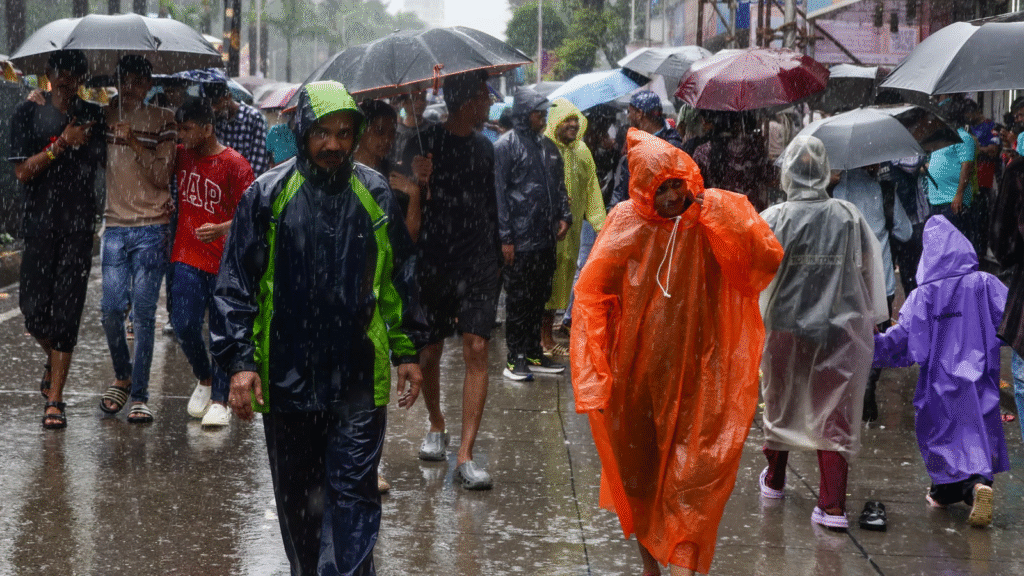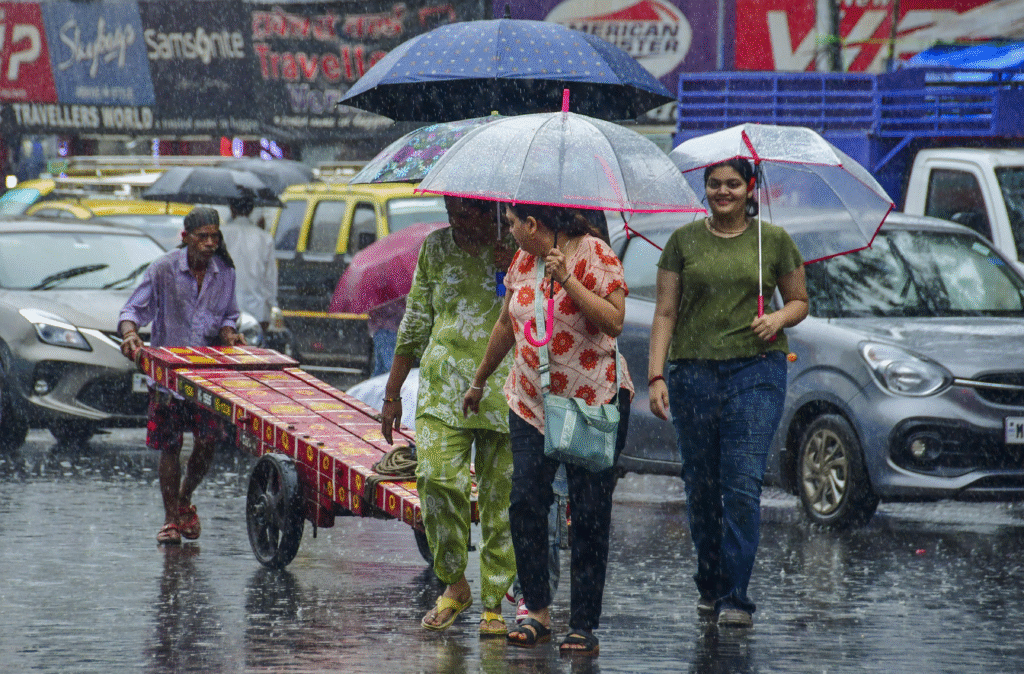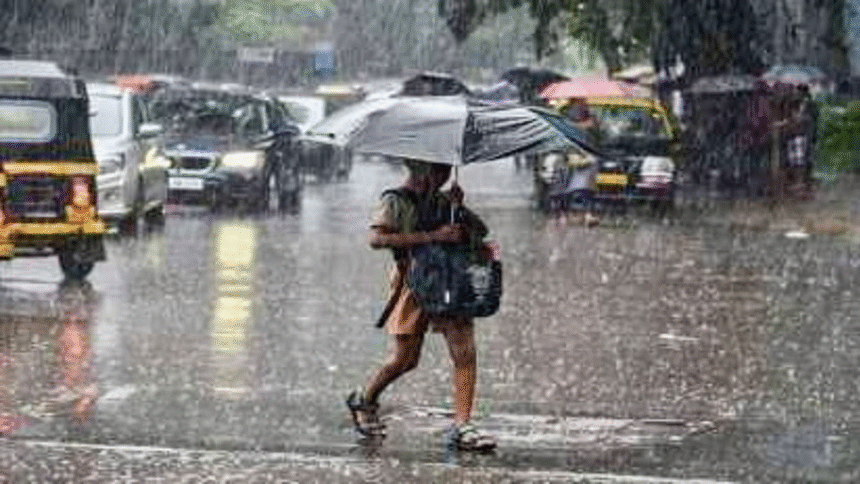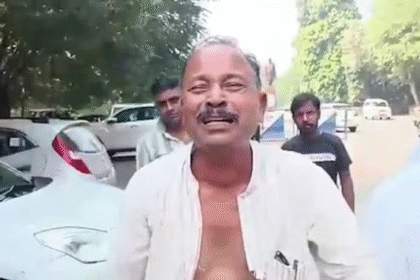Mumbai Weather Alert: IMD Issues Yellow Warning as Heavy Rainfall Batters City Till Sept 6
Mumbai faces heavy rainfall as IMD issues Yellow Alert till Sept 6. City braces for waterlogging, traffic chaos, and weather disruptions across key areas
Mumbai woke up to cloudy skies and rain-soaked morning on Friday, with the India Meteorological Department (IMD) issuing a Yellow Alert for both today and tomorrow (September 5 and 6). Orange Alerts have also been issued for neighbouring districts such as Raigad, Palghar, and Thane
The IMD’s five-day forecast indicates that heavy rainfall will continue until Saturday, particularly at isolated locations. However, rainfall intensity is expected to reduce from Sunday (September 7) onwards. IMD predicts moderate showers on Sunday and Monday, with no weather warnings currently in place
With ongoing issues of water-logging and traffic congestion, further disruptions are likely over the next 48 hours, especially in low-lying areas. Commuters are advised to allow extra travel time and plan journeys accordingly.
Mumbai, India’s financial capital, is once again on high alert as the India Meteorological Department (IMD) has issued a Yellow Alert warning for heavy rainfall across the city and surrounding regions. The alert, valid until September 6, has raised concerns about flooding, waterlogging, and traffic disruptions as the city battles yet another spell of relentless monsoon rains.

According to the IMD, Mumbai is expected to receive moderate to heavy rainfall in several areas over the coming days. Suburban regions, including Thane, Navi Mumbai, and Palghar, are likely to witness intense showers accompanied by strong winds. The forecast also warns of possible thunderstorms in isolated pockets.
The Yellow Alert signals that while conditions may not yet be extreme, citizens should remain cautious and prepared for significant rainfall-related disruptions. Authorities have advised residents to avoid unnecessary travel and stay updated with official weather bulletins.
Mumbai has already been experiencing bouts of heavy showers over the past few days, leading to waterlogging in low-lying areas, traffic jams on key routes, and delays in public transport services. Several arterial roads, including the Western Express Highway and Eastern Express Highway, witnessed slow-moving traffic due to accumulated water.
Local train services, often described as the city’s lifeline, faced disruptions during peak hours as heavy downpours affected tracks in certain sections. BEST bus services were also diverted in flooded areas to ensure commuter safety.
For many Mumbaikars, the concern is not just travel delays but also the risk of flooding in residential areas. Areas like Sion, Kurla, Chembur, and Dadar are especially prone to waterlogging during intense rainfall, creating hardships for daily wage earners, shopkeepers, and office-goers.

The Brihanmumbai Municipal Corporation (BMC) has deployed extra pumping stations and emergency response teams across flood-prone zones to minimize waterlogging. Control rooms are on high alert, and officials are closely monitoring rainfall levels. Residents have been urged to report any incidents of flooding or tree collapses through the BMC helpline and mobile app.
Despite these efforts, experts warn that Mumbai’s outdated drainage system remains a major challenge. Heavy rainfall during high tide often overwhelms the city’s infrastructure, resulting in waterlogging that can take hours, or even days, to clear.
Authorities have issued several safety guidelines for citizens during this Yellow Alert period:
Avoid stepping out unless necessary, especially during heavy downpours.
Refrain from taking shelter under trees or unstable structures during thunderstorms.
Stay away from flooded areas and open manholes.
Keep essential items like medicines, drinking water, and flashlights handy.
Emergency services, including the police and fire department, are on standby to respond quickly to any crisis situation.

The IMD has cautioned that rainfall is expected to continue in varying intensity until September 6, after which the situation will be reassessed. While Mumbai is no stranger to monsoon chaos, each year the city faces fresh challenges in coping with extreme weather events.
As climate change intensifies rainfall patterns across India, urban centers like Mumbai remain especially vulnerable to flooding. Experts stress the importance of long-term solutions, including improved drainage, sustainable urban planning, and better early warning systems.
For now, the immediate focus remains on safety, preparedness, and resilience, as Mumbaikars brace for several more days of rain.
Read Also : Afghanistan Earthquake Disaster: 2,200 Dead as Two Powerful Aftershocks Devastate Survivors








